 W
WAdam Asnyk, was a Polish poet and dramatist of the Positivist era. Born in Kalisz to a szlachta family, he was educated to become an heir of his family's estate. As such he received education at the Institute of Agriculture and Forestry in Marymont and then the Medical Surgeon School in Warsaw. He continued his studies abroad in Breslau, Paris and Heidelberg. In 1862 he returned to Congress Poland and took part in the January Uprising against Russian rule. Because of that he had to flee his country and settled in Heidelberg, where in 1866 he received a doctorate of philosophy. Soon afterwards he returned to Poland and settled in the Austrian-held part of the country, initially in Lwów and then in Kraków.
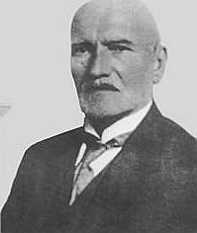 W
WOswald Marian Balzer was a Polish historian of law and statehood, one of the most renowned Polish historians of his times.
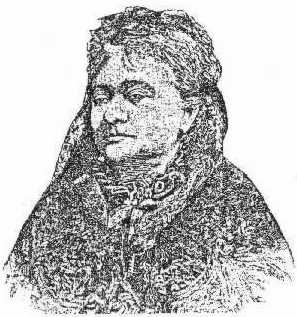 W
WLucyna Ćwierczakiewiczowa was a Polish writer, journalist and author of Polish cookery books.
 W
WElżbieta "Izabela" Dorota Czartoryska was a Polish princess, writer, art collector, and prominent figure in the Polish Enlightenment.
 W
WWirydianna Fiszerowa was a Polish noblewoman best known for her memoirs, which mention her life in pre- and post-partition Poland as well as her relations with prominent people of the time, including King Frederick II of Prussia, Izabela Czartoryska, King Stanisław II Augustus, Józef Poniatowski, Jan Henryk Dąbrowski, and Tadeusz Kościuszko, whom she adored.
 W
WLeontyna Halpertowa, née Eleonora Halpertowa z Żuczkowskich, was a Polish stage actress and translator. She was one of the most famous Polish actors of her time.
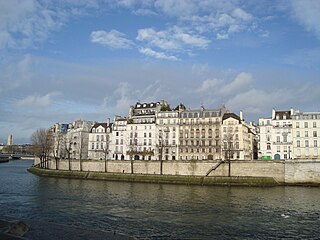 W
WThe Historical and Literary Society, a successor organisation to the Literary Society, was founded in Paris in 1832 as a Polish political and cultural association by a group that included Alexandre Walewski, Napoleon's natural son and future minister of foreign affairs of Napoleon III. Its founding chairman was Adam Jerzy Czartoryski and from 1861, his son, Wladyslaw Czartoryski. The society's original aim was "to collect and publicise materials relating to the former Kingdom of Poland, its current circumstances and future prospects, in the context of maintaining and encouraging in the opinion of nations the sympathy they have directed towards Poland.
 W
WLeopold Janikowski was a Polish explorer and ethnographer.
 W
WMaria Konopnicka was a Polish poet, novelist, children's writer, translator, journalist, critic, and activist for women's rights and for Polish independence. She used pseudonyms, including Jan Sawa. She was one of the most important poets of Poland's Positivist period.
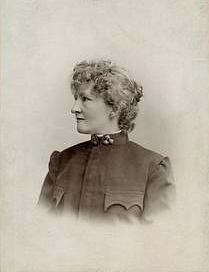 W
WTeodora Krajewska was a Polish-born Austro-Hungarian physician, writer and teacher.
 W
WJadwiga Łuszczewska was a Polish poet and novelist. She was born and died in Warsaw.
 W
WRosa Luxemburg was a Polish Marxist, philosopher, economist, anti-war activist and revolutionary socialist who became a naturalized German citizen at the age of 28. Successively, she was a member of the Social Democracy of the Kingdom of Poland and Lithuania (SDKPiL), the Social Democratic Party of Germany (SPD), the Independent Social Democratic Party (USPD) and the Communist Party of Germany (KPD).
 W
WAntoni Malczewski was a Polish romantic poet, known for his only work, "a narrative poem of dire pessimism", Maria (1825).
 W
WEliza Orzeszkowa was a Polish novelist and a leading writer of the Positivism movement during foreign Partitions of Poland. In 1905, together with Henryk Sienkiewicz, she was nominated for the Nobel Prize in Literature.
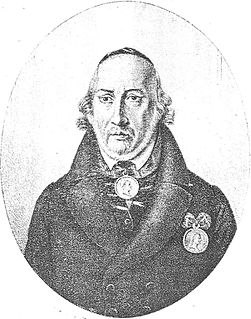 W
WJoseph Perl, was an Ashkenazi Jewish educator and writer, a scion of the Haskalah or Jewish Enlightenment. He wrote in Hebrew, Yiddish, and German; in 1819, he published the first Hebrew novel. Born and raised in the Austrian province of Galicia shortly after its annexation in the first partition of Poland, he was a follower of Hasidism in his youth. Later, he turned against Hasidism and became a proponent of Jewish emancipation and Haskalah, although he remained an observant Jew. He is best known for his many writings on Hasidism, ranging from critical treatises to parody.
 W
WMaria Rodziewiczówna was a Polish writer, among the most famous of the interwar years. Her works often addressed patriotism, idealized rural life, and praised the countryside and peasantry. Rodziewiczówna is also noted for advocating for women's rights. Her writings include "Wrzos" ("Heather"), "Dewajtis", "Lato leśnych ludzi", "Straszny dziadunio".
 W
WPrincess Carolyne zu Sayn-Wittgenstein was a Polish szlachcianka (noblewoman) who is best known for her 40-year relationship with musician Franz Liszt. She was also an amateur journalist and essayist, and it is conjectured that she did much of the actual writing of several of Liszt's publications, especially his Life of Chopin. She maintained an enormous correspondence with Liszt and many others, which is of vital historical interest. She admired and encouraged Hector Berlioz, as is clear from their extensive correspondence. Berlioz dedicated Les Troyens to Princess Carolyne.
 W
WOsip Ivanovich Senkovsky, born Józef Julian Sękowski, was a Polish-Russian orientalist, journalist, and entertainer.
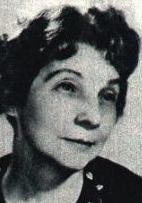 W
WEwa Szelburg-Zarembina was a Polish novelist, poet and screenplay writer.
 W
WPaulina Wilkońska was a Polish novelist, editor, and diarist.
 W
WPrincess Maria Czartoryska, also formerly known as Duchess Maria, Duchess Louis of Württemberg, was a Polish noble, writer, musician and philanthropist.
 W
WMaria Julia Zaleska de domo Perłowska was a Polish writer, prosaist and publicist. Editor of weekly magazine Wieczory Rodzinne [Family evenings].
 W
WKazimiera Zawistowska de domo Jasieńska, pseudonym Ira, (1870–1902) was a Polish poet and translator.
 W
WNarcyza Żmichowska pronounced [narˈt͡sɨza ʐmʲiˈxɔfska], also known under her popular nom de plume Gabryella, was a Polish novelist and poet. She is considered a precursor of feminism in Poland.